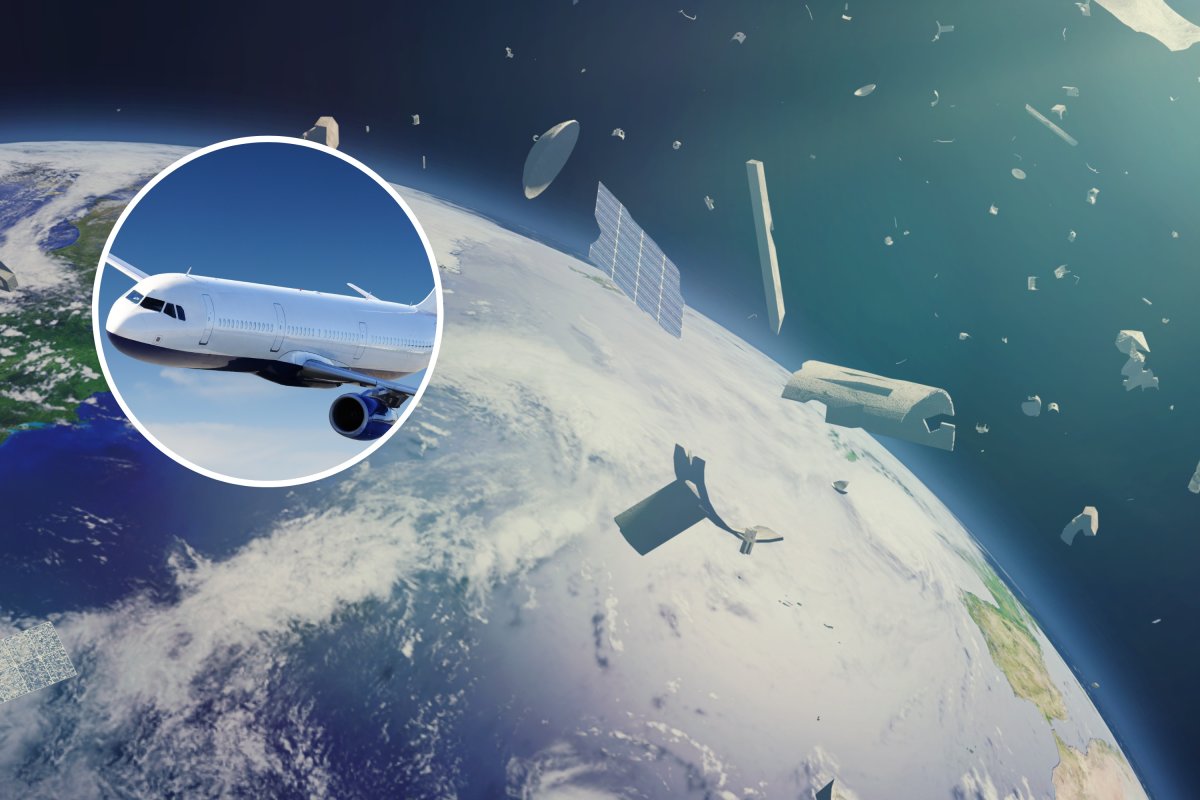Falling space junk produced by rocket launches poses a risk to the aviation industry—with a roughly one-in-four annual chance that a piece of debris will pass through busy airspace.
This is the conclusion of researchers from the University of British Columbia, Canada, who explain that rocket debris can disrupt flights and create additional costs for airlines and travelers alike.
In their study, the researchers used data on rocket junk re-entries and flights on the busiest day in 2023 to calculate the risk to airspaces with various air traffic densities.
Regions with 10 percent or more of the peak traffic density (seen over Denver, Colorado) had a 26 percent annual chance of seeing a rocket debris re-entry.
The team have also estimated the annual odds of a direct—and likely devastating—impact between a falling piece of space junk and an aircraft: a mercifully small 1-in-430,000.
Both these odds are figures that are only set to increase, with both demand for air travel and commercial rocket launch numbers on the rise.
In fact, according to the International Air Transport Association, the number of airline passengers is expected to increase by seven percent this year alone.

When space launches are used to ferry satellites up into orbit, spent rocket stages are often left in low enough orbits that they can end up re-entering the atmosphere, uncontrolled. While much of this debris burns up during re-entry, fragments may still reach the ground.
Last year alone there were 258 successful rocket launches, leading to a record 120 uncontrolled rocket debris re-entries. It is estimated that more than 2,300 rocket bodies remain in orbit around the Earth.
There are precedents for space junk disrupting air travel. In 2022, for example, a falling 20-tonne fragment of rocket forced the closure of parts of French and Spanish airspace.
"The recent explosion of a SpaceX Starship shortly after launch demonstrated the challenges of suddenly having to close airspace," added paper author Ewan Wright in a statement.
"The authorities set up a 'keep out' zone for aircraft, many of which had to turn around or divert their flight path."
And that situation, he noted, could easily have been much more complicated than it was.
"We had good information about where the rocket debris was likely to come down, which is not the case for uncontrolled debris re-entering the atmosphere from orbit," he said.
When space debris is tracked passing into busy airspace, aviation authorities are put in the position of either closing airspace and, where possible, diverting flights—or risking disaster.
For paper co-author and physicist Dr. Aaron Boley, however, the onus should be on the space sector to address this issue at its root.
"Why should authorities have to make these decisions in the first place? Uncontrolled rocked body re-entries are a design choice, not a necessity," he explained, noting that rockets could be developed for controlled re-entry instead.
"The space industry is effectively exporting its risk to airlines and passengers."
For paper co-author and political scientist professor Michael Byers, coordinated international action is needed to address this problem.
"Countries and companies that launch satellites won't spend the money to improve their rocket designs unless all of them are required to do so," he said in a statement.
"We need governments to come together and adopt some new standards here."
Do you have a tip on a science story that Newsweek should be covering? Do you have a question about space? Let us know via science@newsweek.com.
Reference
Wright, E., Boley, A., & Byers, M. (2025). Airspace closures due to reentering space objects. Scientific Reports, 15(1), 2966. https://doi.org/10.1038/s41598-024-84001-2
Is This Article Trustworthy?
Is This Article Trustworthy?
Newsweek is committed to journalism that is factual and fair
We value your input and encourage you to rate this article.
Newsweek is committed to journalism that is factual and fair
We value your input and encourage you to rate this article.
About the writer
Ian Randall is Newsweek's Deputy Science Editor, based in Royston, U.K. His focus is reporting on science and health. He ... Read more



